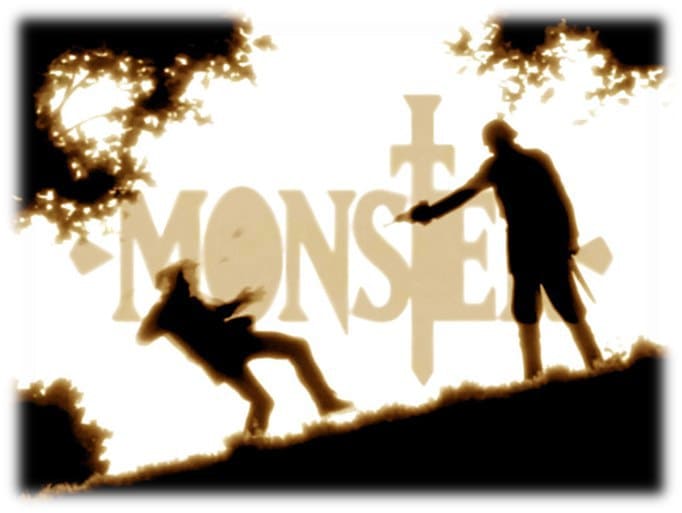Mental Illness And Violence: Deconstructing The "Monster" Myth

Table of Contents
The Statistical Reality: Mental Illness and the Likelihood of Violence
Data Dispelling the Myth
Contrary to popular belief, individuals with mental illnesses are far more likely to be victims of violence than perpetrators. Numerous studies conducted by reputable organizations like the World Health Organization (WHO) and the National Institute of Mental Health (NIMH) support this.
- Studies show that individuals with schizophrenia, for instance, have a slightly elevated risk of violent behavior compared to the general population, but this is often associated with other factors, not the illness itself.
- A meta-analysis of several studies found that individuals with depression or anxiety disorders have a lower risk of violent behavior than those without mental health conditions.
- The risk of violence is significantly increased when substance abuse is a co-occurring condition alongside mental illness. This emphasizes the importance of considering comorbid factors.
Understanding the Correlation, Not Causation
It's crucial to understand the difference between correlation and causation. While some studies may show a correlation between certain mental illnesses and increased risk of violent behavior, this doesn't mean mental illness causes violence.
- Co-occurring conditions, such as substance abuse disorders, significantly increase the risk of violent behavior. Alcohol and drug use can impair judgment and impulse control, leading to aggressive acts.
- Untreated mental illness can sometimes lead to impulsive behavior or emotional dysregulation. However, with proper treatment and management, this risk can be substantially reduced. Appropriate medication and therapy are vital components of managing these conditions.
Media Portrayal and its Impact: Fueling the "Monster" Myth
Stereotyping in Media
Media often perpetuates the harmful stereotype of individuals with mental illness as violent and unpredictable. This biased representation contributes significantly to the stigmatization of mental illness.
- Countless movies and TV shows depict individuals with mental illnesses as menacing figures, reinforcing negative stereotypes and fueling fear and misunderstanding.
- News reports frequently focus on instances of violence committed by individuals with mental health issues, while ignoring the vast majority of individuals with mental illness who are not violent.
The Role of Responsible Media Representation
Responsible media portrayal is crucial in changing public perception and combating the stigma. Accurate and nuanced representations can help challenge these harmful stereotypes.
- Documentaries and films that focus on the lived experiences of individuals with mental illness can humanize these conditions and promote empathy.
- Journalists and media professionals have a responsibility to report on mental health issues accurately and avoid perpetuating harmful stereotypes. Responsible reporting should focus on facts and avoid sensationalizing isolated incidents.
Addressing the Root Causes: Prevention and Intervention
The Importance of Early Intervention and Treatment
Early diagnosis and treatment are crucial in managing mental health conditions and mitigating the risk of violence. Access to quality mental healthcare is essential.
- Various treatments, including psychotherapy (talk therapy) and medication, are effective in managing many mental health conditions.
- Affordable and accessible mental healthcare services must be prioritized to ensure everyone can receive the support they need.
Community Support and Social Inclusion
Strong community support systems and social inclusion play a vital role in preventing violence and promoting mental well-being.
- Community-based mental health programs offering support groups, peer support, and educational resources can be particularly beneficial.
- Reducing social stigma and discrimination is crucial in enabling individuals with mental health conditions to seek help without fear of judgment.
Challenging the Stigma: Promoting Understanding and Empathy
The Impact of Stigma
The stigma surrounding mental illness can prevent individuals from seeking help, leading to isolation and potentially increasing the risk of self-harm or violence.
Promoting Education and Awareness
Raising awareness and promoting understanding through educational initiatives and public awareness campaigns is crucial to combatting this stigma.
- Schools, workplaces, and community organizations can all play a vital role in providing education on mental health.
- Open conversations about mental health can help break down barriers and create a more supportive environment.
Conclusion
The link between mental illness and violence is a complex issue often misrepresented. This article has demonstrated that individuals with mental illnesses are more likely to be victims of violence than perpetrators. The "monster" myth is fueled by inaccurate media portrayals and a lack of understanding. Addressing this requires improving access to mental healthcare, promoting early intervention, fostering community support, and challenging the pervasive stigma surrounding mental health. Let's work together to understand mental illness and violence accurately and create a more supportive society for everyone. To learn more and find resources, visit the websites of the National Alliance on Mental Illness (NAMI) and the MentalHealth.gov. Let's work together to fight the stigma and promote understanding of mental illness and violence, building a more compassionate and inclusive community.

Featured Posts
-
 Stricter Uk Visa Rules Addressing Work And Student Visa Abuse
May 09, 2025
Stricter Uk Visa Rules Addressing Work And Student Visa Abuse
May 09, 2025 -
 Aocs Fierce Fact Check Of Jeanine Pirro On Fox News
May 09, 2025
Aocs Fierce Fact Check Of Jeanine Pirro On Fox News
May 09, 2025 -
 Analyzing The Impact Of Androids New Design On Gen Zs Smartphone Choices
May 09, 2025
Analyzing The Impact Of Androids New Design On Gen Zs Smartphone Choices
May 09, 2025 -
 Live Music And Events Your Easter Weekend Guide To Lake Charles
May 09, 2025
Live Music And Events Your Easter Weekend Guide To Lake Charles
May 09, 2025 -
 Stock Market Surge Sensex And Nifty Post Strong Gains Key Movers Highlighted
May 09, 2025
Stock Market Surge Sensex And Nifty Post Strong Gains Key Movers Highlighted
May 09, 2025
